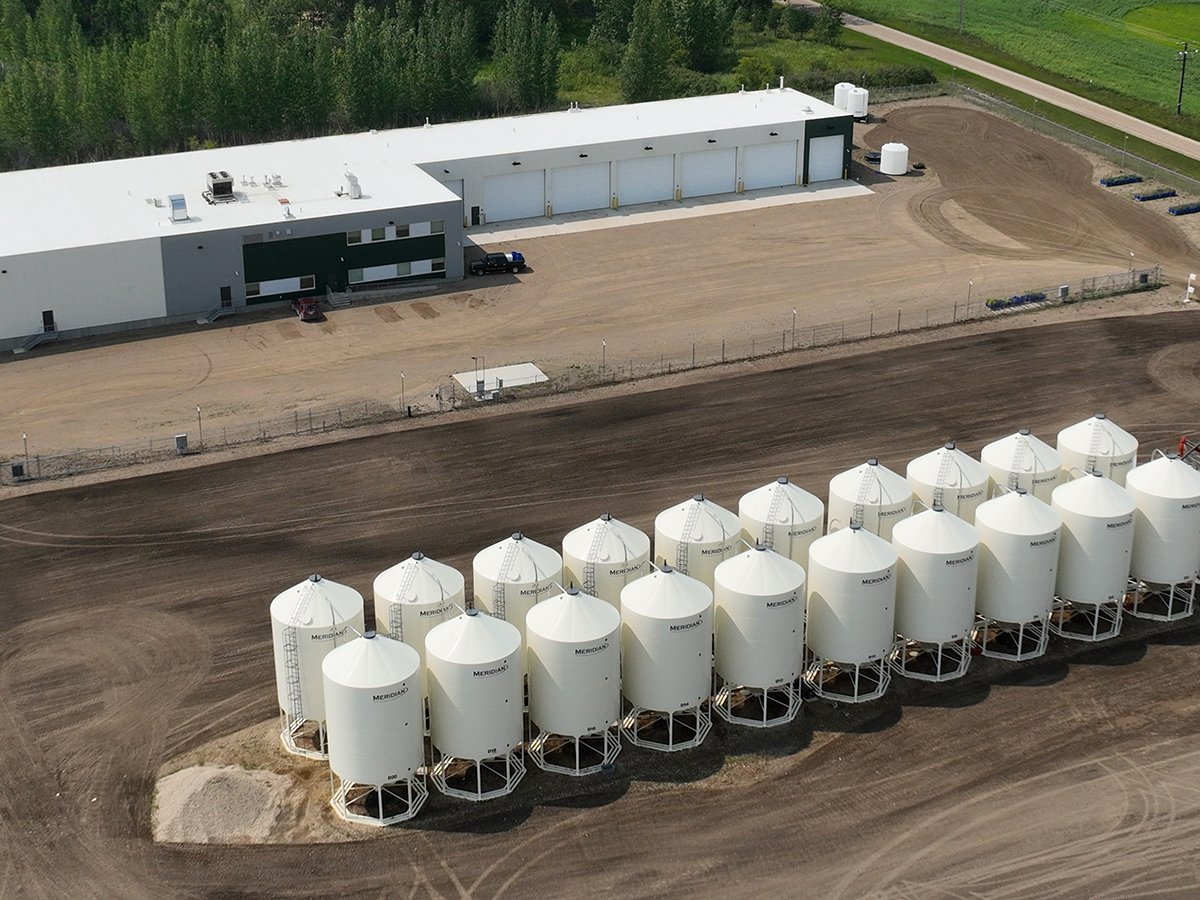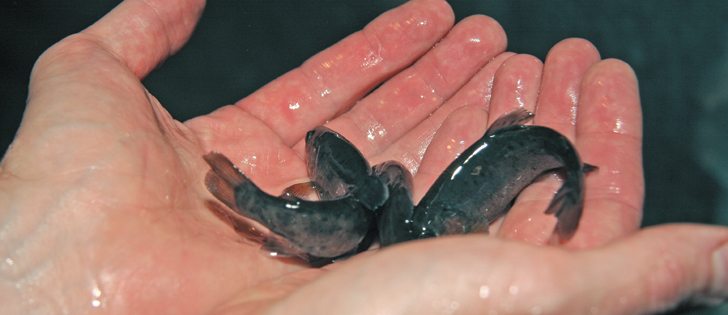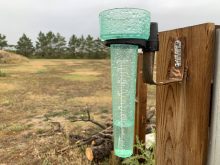RED DEER, Alta. — Smoky Trout Farm may see its customers for only five minutes once a year, but that is enough to build a lasting relationship.
Hidden off a major central Alberta highway near Red Deer, the farm has been operating for 18 years, supplying customers with rainbow trout to stock ponds, dugouts and private lakes.
Owned and run by Dan Menard and his sons, Ray and Max, the business has expanded to include bioremediation to help customers deal with algae, aeration and other pollution problems.
Read Also

Saskatchewan firm aims to fix soil with compost pellets
In his business, Humaterra, Leon Pratchler is helping farmers maximize yields in the weakest areas of their fields through the use of a compost pellet.
The business has gone swimmingly.
“It is like we have three gravel trucks when we could use 12,” said Dan.
Added Max: “The biggest aspect of our business is now the product that goes to maintain water quality in the pond.”
Dan, who worked for Haliburton, bought a former chicken farm on a small acreage when he was transferred to the Red Deer area. He wanted to do something with the property and convinced Max, who was a mapmaker with a survey company, to join him. Alberta Agriculture was offering a three day course on fish farming, and they attended.
“They gave us a lot of information, but I don’t know if we absorbed it. We were very green,” said Max.
Ray was a banker and joined his father and brother three years ago to handle the books, marketing and farm work.
They started with a few small tanks and eventually renovated the chicken barn to hatch fish, rear them and build up the environmental side of the business.
Sustainability guides their business plan. The farm is surrounded by pastureland and canola fields, and Red Deer County has been supportive.
“It is very seldom that you will find an acreage that becomes a self-supporting agriculture-based business,” said Dan. “To have agriculture where you are supporting families off a small ag base is very exciting for counties.”
The environmental footprint is small because they use well water that is filtered and recirculated, and they have built up wetlands to handle effluent. They added a solar powered aeration system but rely on power from the grid to run the filtration system.
“We probably have the same footprint as three or four head of cattle,” said Max.
The cycle starts when they buy certified disease-free rainbow trout eggs from Ontario. They are hatched and grown over winter, and customers make arrangements to pick up fish in the spring to stock their dugouts, ponds or privately owned lakes.
The fish are female and triploid, meaning they have been sterilized and cannot reproduce.
They are sold by the pound and with good management can grow large and live five to seven years.
Fish will survive over winter if water quality and aeration are maintained.
The Menards train customers to rear the fish and maintain the water quality so that it is a healthy clean environment.
“We now have more customers who buy smaller fish, grow them and keep them year round. They now have sustainable fish,” Ray said.
Their biggest single customer is the Alberta Conservation Association.
There are also a number of private community associations in Calgary with lakes covering about 50 acres for recreation and aesthetics.
Mahogany, Mackenzie and Arbour lakes are among those customers. The Menards supply trout and work with customers to rear the fish and manage the water to prevent algae and bird predation.
Fish can get diseases, but that may occur because they are overcrowded and stressed.
“The biggest issue with customers is a lack of oxygen in their ponds and they have too much nutrients coming in,” Ray said.
A farm of this type can be labour intensive because someone must always be there to feed fish and monitor equipment. Family members handled all the work until recently, but a new employee with a master’s degree in aquaculture has now joined them.
Their main goal is to make the farm more automated and efficient to save money on energy costs.
Alberta Agriculture helped cover half the cost of their solar aeration system, which reduces power costs by 10 percent.
However, they worry they may have to increase the price of their fish if the upcoming provincial carbon tax is more burdensome than expected, which may deter some customers.
The farm is already quite automated. An automatic generator system comes on if the power goes out, and there is a messaging system to their cellphones and home phones to warn them of pending trouble. The buildings are insured but the fish are not, so a power outage would be a major loss on many levels.
Max used to sort the fish manually with a special hand-held screen that the small fish fell through. He installed a special conveyor system that pumps the fish up into a sorting device similar to what is used to sort fruit.
It reduced his work load from six hours to sort fish from a single tank to less than two hours.
They want to expand in the near future, and changes would include more automation to reduce power bills.
The environment is critical to them.
Algae is a common problem, so they offer biological products such as beneficial bacteria to break down nitrogen and phosphorus in the water that may have come from cattle on pasture, drinking from dugouts, fertilizer on cropland or a treed area with a lot of leaf debris.
Many of Alberta’s public lakes were closed this year because of blue green algae.
Copper sulfate products can be used, but the Menards prefer to work with clients to prevent nutrient runoff from livestock, septic fields and other potential pollutants.
The Menards said they do not have much competition from farms supplying stocking fish and companies selling aeration products.
Water management is the major area of growth, and they have participated in community events where the fish are released as education projects.
They also believe the province should pay more attention to water management because many natural lakes and rivers in the province are in trouble, especially from algae blooms.
They have learned that customers with private water sources and fish to care for are more willing to take action and behave sustainably.
“Customers get very passionate about their ponds and their fish, especially those who feed them,” Ray said.
















